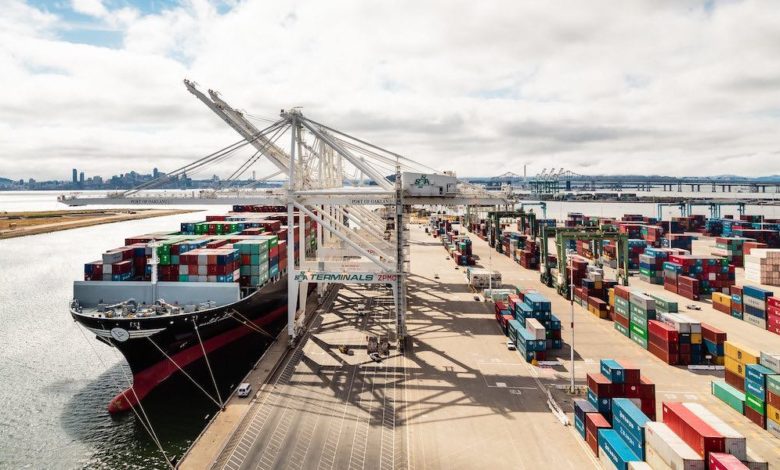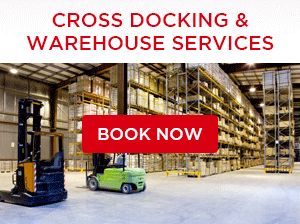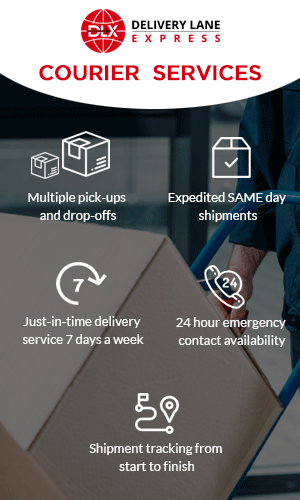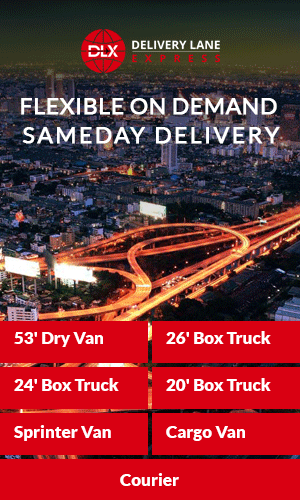
BLOG

Welcome to our comprehensive guide on transloading services in Oakland Port, California. Transloading plays a crucial role in optimizing logistics and streamlining the movement of goods between different transportation modes. In this article, we'll explore the significance of transloading in Oakland and address common questions associated with this service.
Transloading is the process of transferring goods from one mode of transportation to another. In Oakland Port, this often involves moving cargo between ships, trains, and trucks. The strategic location of Oakland Port makes it a key hub for transloading activities, facilitating the seamless transfer of goods between various transport methods.
Cost Efficiency : Transloading helps reduce transportation costs by optimizing routes and utilizing the most cost-effective modes for different segments of the journey.
Time Savings : By eliminating the need for direct transportation, transloading can expedite the overall shipping process, reducing transit times.
Flexibility : Transloading allows for flexibility in choosing transportation modes, enabling businesses to adapt to changing market demands efficiently.
Our transloading services in Oakland Port offer a range of features to meet diverse logistical needs:
State-of-the-Art Facilities : Our facilities are equipped with modern technology and equipment to ensure efficient transloading processes.
Customized Solutions : We understand that every cargo is unique. Our transloading services are tailored to meet the specific requirements of different industries.
Safety Measures : Ensuring the safety of your goods is our priority. We adhere to strict safety protocols and quality standards during the transloading process.
Transloading services in Oakland Port, California, have become a pivotal element in the logistics industry, offering businesses a strategic advantage in optimizing transportation processes. In this comprehensive guide, we will delve into the pros and cons of transloading services in Oakland and explore how they impact the efficiency of supply chains.
1. Cost Efficiency - Transloading in Oakland allows businesses to leverage cost-effective transportation modes. By seamlessly transferring goods between different modes such as ships, trains, and trucks, companies can choose the most economical options for each segment of the journey.
2. Optimized Logistics - The strategic location of Oakland Port facilitates efficient movement of goods, reducing transit times and enhancing overall logistics efficiency. Transloading ensures that cargo is transferred smoothly between various transportation methods, minimizing delays.
3. Flexibility and Adaptability - Transloading services in Oakland offer flexibility in adapting to changing market demands. Businesses can easily modify transportation strategies based on cargo requirements, ultimately improving their responsiveness to market dynamics.
4. Risk Mitigation - Transloading can help mitigate risks associated with a single mode of transportation. By diversifying transportation methods, businesses reduce the impact of disruptions in any one mode, enhancing the overall resilience of the supply chain.
5. Environmental Impact - Optimizing transportation routes through transloading can contribute to a reduced environmental footprint. By selecting the most efficient modes for different segments of the journey, businesses can minimize fuel consumption and emissions.
1. Handling and Transfer Costs - While transloading can lead to cost savings in transportation, there are associated handling and transfer costs. The need for additional equipment and labor during the transloading process may offset some of the financial benefits.
2. Potential for Damage - The transfer of goods between different transportation modes introduces the risk of damage. Improper handling or inadequate equipment during transloading can result in product damage, impacting the quality and integrity of the cargo.
3. Complex Coordination - Coordinating the movement of goods across various transportation modes requires meticulous planning and communication. Any breakdown in coordination can lead to delays and disruptions in the supply chain.
4. Infrastructure Dependency - The effectiveness of transloading services in Oakland is dependent on the availability of well-maintained and efficient infrastructure. Inadequate facilities or outdated equipment can hinder the smooth execution of transloading processes.
5. Regulatory Compliance - Transloading involves adherence to various transportation regulations. Ensuring compliance with diverse regulations governing different modes of transportation adds a layer of complexity to the logistics process.
Oakland's strategic location allows for efficient movement of goods between various transportation modes, reducing costs and transit times.
Our transloading facilities in Oakland are equipped to handle a wide range of cargo sizes, from small parcels to oversized shipments.
Transloading optimizes supply chain efficiency by allowing businesses to choose the most cost-effective transportation modes for different segments of the journey.
Transloading is beneficial for industries with diverse transportation needs, including manufacturing, retail, and distribution.
Yes, we provide real-time tracking services to keep you informed about the status and location of your cargo throughout the transloading process.
In conclusion, transloading services in Oakland Port, California, are a key component of modern logistics, offering cost-effective and efficient solutions for businesses. If you're looking to optimize your supply chain and enhance the movement of goods, our transloading services in Oakland are tailored to meet your specific needs.




Copyright - All Rights reserved © Dlxpress
Powered by ITPL
